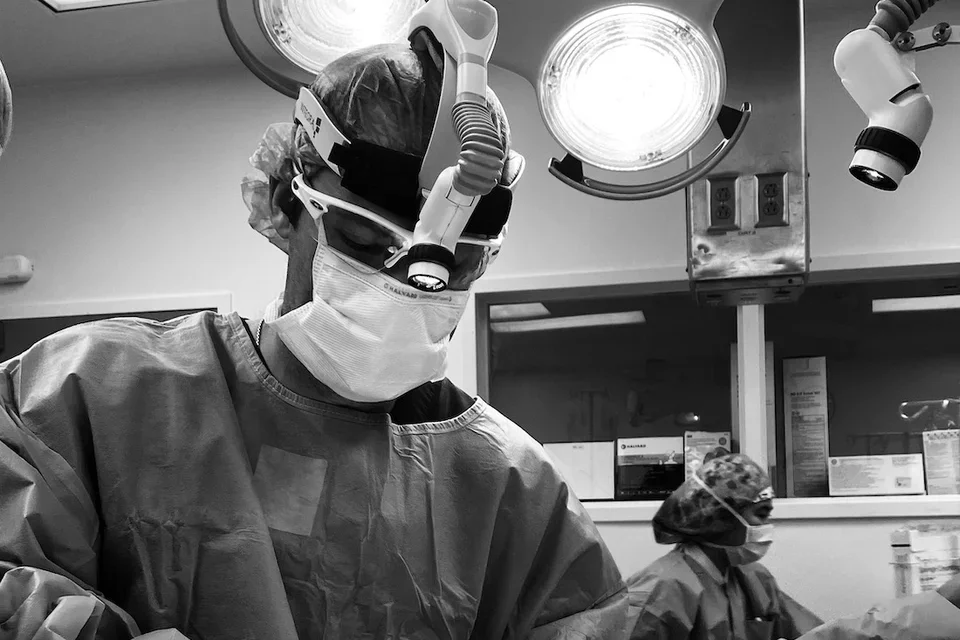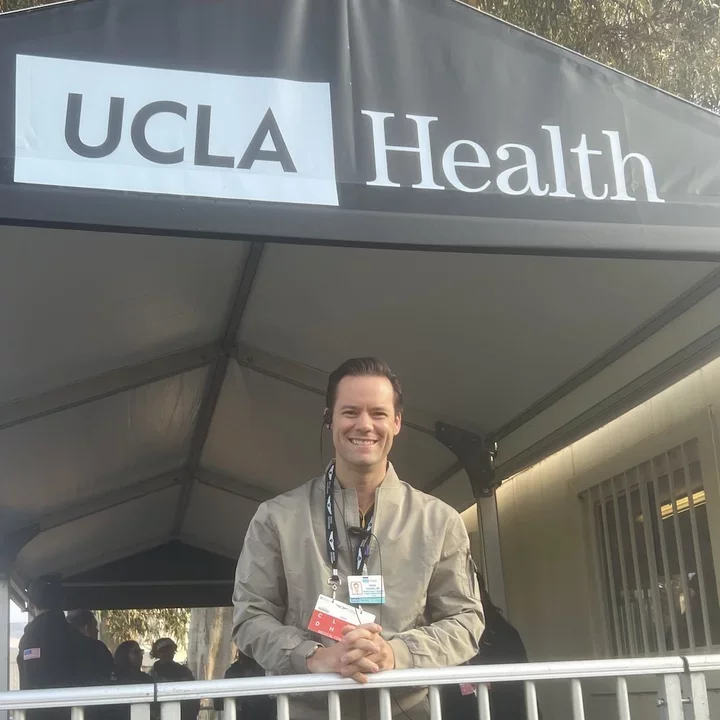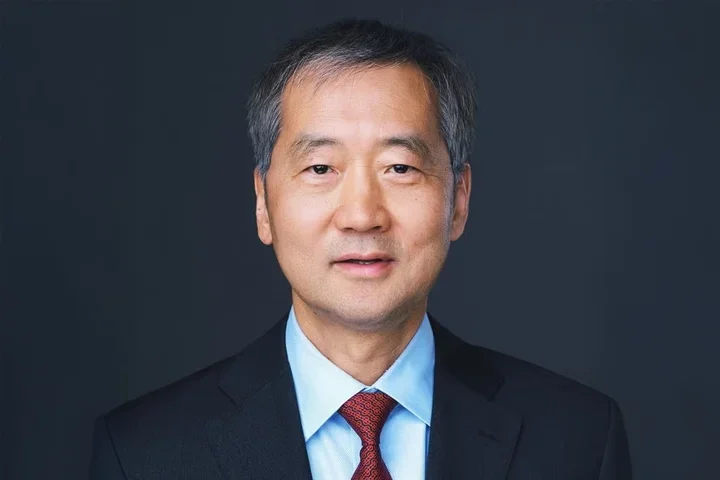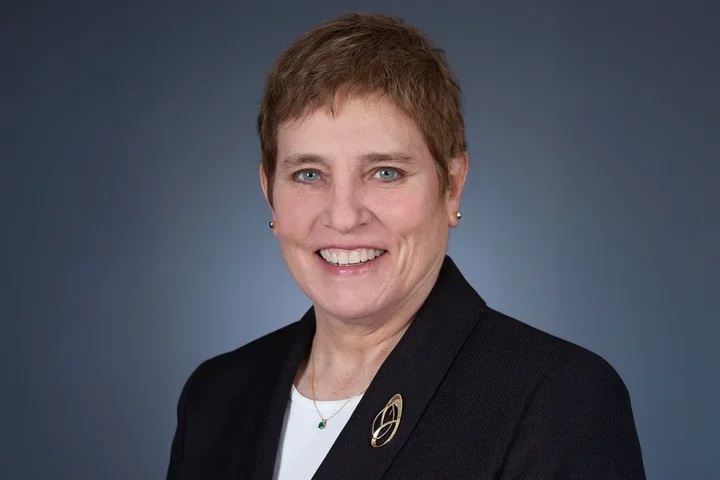What Is a Surgical Oncologist?
Faculty Spotlight

What Does a Surgical Oncologist Do?
A surgical oncologist sees patients with abdominal, soft-tissue, breast, and skin cancers. This adds up to an incredibly broad range of malignancies.
“Patients may be referred to a surgical oncologist for any solid tumor,” explains UCLA Health surgical oncologist Brian E. Kadera.
He sometimes jokes that it’s faster and easier to mention the cancer types he doesn’t treat instead of listing the full range of concerns he handles in his clinical practice.
Seeing patients with many different cancer types makes a surgical oncologist’s day-to-day responsibilities complex and dynamic. They must adapt as rapidly as a given patient’s needs require.
Dr. Kadera, for example, dedicates substantial time to coordinating patient care plans. Working with other physicians on the care team to pinpoint optimal surgery timing is critical for securing the best-possible outcomes.
The ideal time for surgery varies widely across patients with different cancer types, tumor grades, lifestyles, preferences, and myriad other individual factors. The probabilities of surgical risk versus success often determine the timing of the other planned treatments.
That’s why Dr. Kadera views care coordination as one of many important but poorly understood facets of his work as a surgical oncologist. He knows from experience that few people grasp the fine details of how he spends his time.

There’s a misconception he hears again and again: Surgical oncologists just operate.
Even his friends sometimes assume that if he’s not in the operating room, then he’s not working.
This misconception is miles away from the true scope of a surgical oncologist’s responsibilities.
While it’s true that many of these specially trained surgeons perform only a few operations each week, their schedules are packed 24/7 with tasks essential to ensuring those few operations go as smoothly as possible.
A surgical oncologists responsibilities beyond surgery include but are not limited to:
- Reviewing patient charts and scans
- Seeing patients in the clinic
- Coordinating patient care, which includes consulting with other members of the patient’s care team, ordering and/or discussing scans and biopsies, and numerous other case-specific functions.
Why Would a Patient Be Referred to a Surgical Oncologist?
Patients may be referred to a surgical oncologist for any solid tumor.
The conditions they may treat include but are not limited to:
- Sarcoma
- Pancreatic cancer
- Breast cancer
- Melanoma
- Abdominal tumors
- Gastrointestinal (GI) cancer
- Neuroendocrine tumors
Meet Dr. Brian Kadera, Surgical Oncologist at UCLA Health
Dr. Kadera sees solving cancer-related problems as the true essence of his work and his favorite aspect of it.
“People come to me seeking solutions when they don’t know exactly what to do about life-or-death problems.”
In his clinical practice, he works toward solving individual patient problems. Through his research, he’s targeting a singular source of countless patient problems: the current deficit of systemic therapies effective in treating sarcomas.
Without an effective systemic therapy to use in conjunction with localized surgery, patient outcomes suffer, especially in advanced cases.
Advanced tumors rarely stay localized to one specific area a surgical oncologist would even be able to see. The cancer exists in a dispersed state beyond any solid tumors present. That makes it practically impossible to hope all the cancer can be removed via surgery.
“Oftentimes, the advanced cancers have spread at a microscopic level before we even see the patient.”

Dr. Kadera’s lab hopes to drastically improve patient outcomes by identifying non-surgical sarcoma treatment options to complement and/or supplement surgery. The research team approaches possible solutions from a novel angle.
Instead of trying to destroy tumors, they want to understand the mechanisms through which tumors transition between different states so they may try locking them in more favorable states.
“We want to know how we might maximize any natural and favorable tendencies of a tumor,” Dr. Kadera explains.
“Let’s not fight biology. Let’s just make it work for us.”
Having the ability to force harmless tumors to remain harmless would grant physicians and patients the freedom and flexibility to monitor slow-growing tumors for years rather than choosing between undergoing precautionary surgery or waiting to see if and how an unpredictable tumor will grow.
How to Become a Surgical Oncologist
To become a surgical oncologist, a student must earn their bachelor’s and medical degrees, complete residency training in general surgery, and finish fellowship training in surgical oncology.
Dr. Kadera decided to become a surgical oncologist after spending a childhood learning the art of welding and steel fabrication from his family.
“We took a lot of pride in making custom ornamental metal pieces that would last forever,” he recalls.
He loved working with his hands and became very skilled. When the time came to forge his own career path, he wanted to leverage his well-developed dexteritytoward work with deeper meaning and purpose.
In medicine, specifically surgery, he found everything he wanted in a future career.
During his medical training, Dr. Kadera narrowed down his surgical specialty options by considering the patient populations for each alongside his own personal preferences and priorities.
“Who am I going to be okay with getting woken up at night to take care of?” he said, remembering all the questions he asked himself when choosing his specialty of practice.
“Who will I be staying at work late to care for instead of spending time with my family?”
He knew both his impact as a physician and his personal happiness and fulfillment demanded he answer these prompts with complete honestly.
“I knew I had to feel a deep sense of compassion for my future patient population to avoid any angst I might experience when their care demanded more of my time.”
He committed to surgical oncology, knowing his compassion for cancer patients would never be in short supply.
Can you specialize within the field surgical oncology?
Surgical oncologists have options for specializing within their field if they wish.
“In general, a surgical oncologist’s subspecialization comes after fellowship and is based on the patients they serve and the needs of their hospital,” Dr. Kadera explains.
Many surgical oncologists, for example, organically develop specialized skills in treating the cancer types they see most often, such as breast and soft-tissue cancers.
Surgical oncologists may also pursue formalized training and certification beyond their core training and board certification to acquire highly specific skills, such as performing hepatopancreato-biliary (HPB) surgery.
Advice for Aspiring Surgical Oncologists
Dr. Kadera advises aspiring surgical oncologists to feel certain they truly can and want to handle all the responsibilities the job brings, especially managing the potentially overwhelming feelings and concerns of patients who might be dying.
“You need to have a strong sense of self because you will be absorbing a lot of anxiety, suffering, and anguish from patients who are, very often, facing deadly diseases. All surgical oncologists must be willing to do that. Your future patients need you to do that,” he explains, stressing that the psychological aspects of the work are critical for would-be surgical oncologists to think about.

He protects his sense of self and maintains the resiliency required to provide humanistic patient care by practicing hobbies completely independent of medicine.
Maintaining outside hobbies, personal passions, and interests can benefit physicians practicing all areas of medicine. However, Dr. Kadera notes that it’s especially important for surgical oncologists due to the emotionally demanding nature of their work.
“With surgical oncology, you often know people for a long time, so you do feel a stronger sense of connection to them, and when bad things happen, you feel responsible for it.”
Hobbies and self-care practices are crucial for helping surgical oncologists recover from setbacks, maintain their own health and wellness, and continue providing optimal care.
In addition to being psychologically resilient, effective surgical oncologists tend to possess a few other core skills and characteristics.
- Curiosity. Surgical oncologists must ask question after question, absorbing minute details until the next best steps in a patient’s care become clear.
- Humility. Surgical oncologists must be comfortable with not having all the answers and with pivoting approaches and plans as new information emerges. They must understand the difference between what approaches they can take and what approaches will lead to the best outcomes for a specific patient at a specific moment in time.
- Confidence. To nurture positive patient outcomes as well as perceptions, surgical oncologists must communicate and perform surgery with absolute confidence.
Surgical Oncologist Salary - How Much Do They Make?
According to Medscape compensation data, surgical oncologists practicing in the United States generally make around $400,000 or more.



